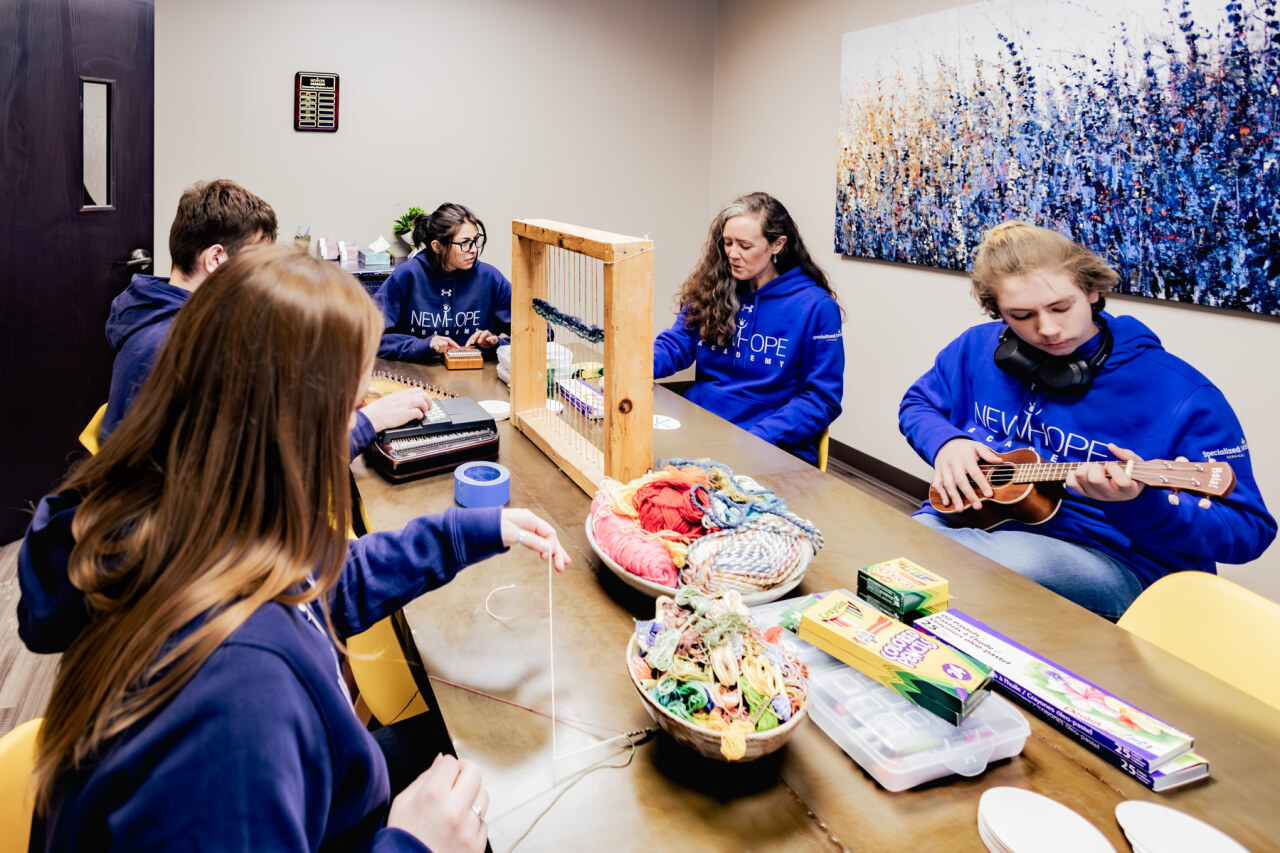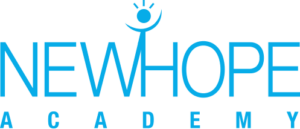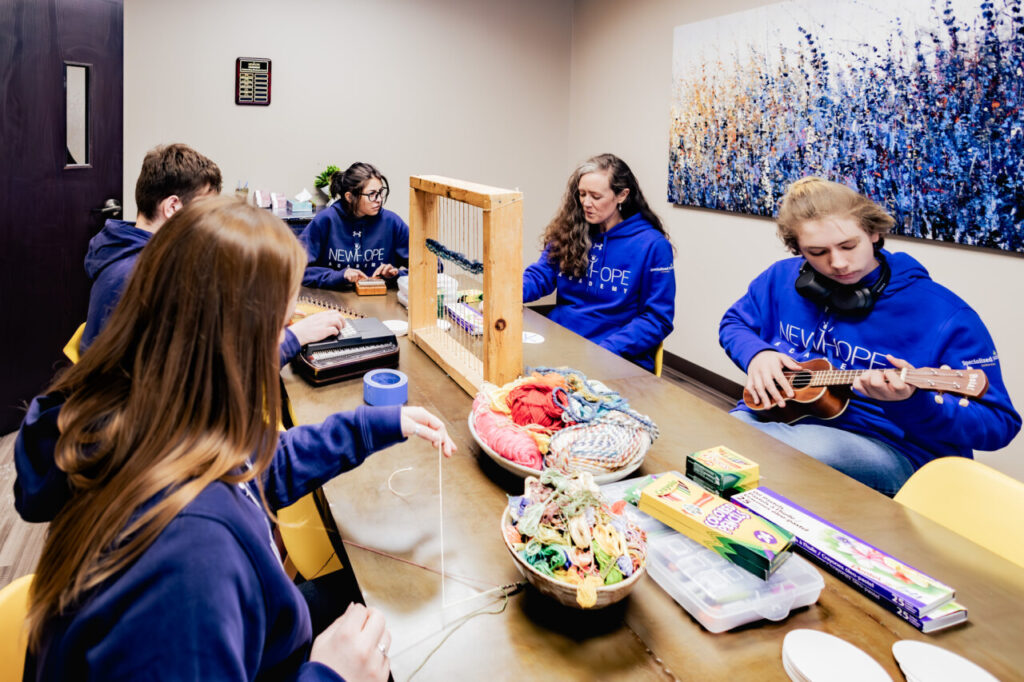The Importance of Executive Functioning Skills: How NewHope Academy Prepares Students for Life Beyond School


At NewHope Academy (NHA), we work with students who are bright, talented, and capable of achieving great things in college and beyond. However, many of our students face internal challenges that make success difficult, including struggles with executive functioning. We provide services for students in grades 6-12, along with a transition program for young adults, helping them overcome these obstacles and reach their full potential. Located in Arlington Heights, IL, we are proud to offer a nurturing environment that focuses on both academic growth and personal development—and we are currently enrolling new students.
Mentor Classes: Building Daily Habits
Our students begin and end their school day with mentor classes, led by case managers who are Learning Behavior Specialist 1 (LBS1) teachers. These sessions focus on essential organizational skills through:
- Backpack checks to keep students prepared and organized.
- Folder cleanouts and email reviews to manage materials and communications.
- Gradebook checks on TeacherEase to monitor missing assignments.
- Assignment notebooks where students list their homework along with time estimates. Teachers sign the notebooks to help students stay accountable and manage their time effectively.
By embedding these habits into the daily routine, we foster organization, time management, and personal responsibility in every student.
Executive Functioning Within Classrooms
 Inside the classroom, we continue building executive functioning skills through structured support:
Inside the classroom, we continue building executive functioning skills through structured support:
- Classroom binders house all subject-specific materials, so students don’t need to carry them between classes, reducing the risk of lost assignments.
- Small class sizes (5:1 ratio) ensure individualized support, allowing teachers to prompt students to start tasks and redirect attention if needed.
- Posted daily schedules outline tasks and homework, helping students stay organized.
- A 3-minute warning bell signals the end of each class, giving students time to prepare for transitions to their next subject.
These strategies create a predictable environment where students can focus, stay organized, and develop the skills they need to manage their responsibilities independently.
Developmental and Vocational Skills (DVS) Class
Our Developmental and Vocational Skills (DVS) class provides essential training in study habits and future planning across all four years of high school:
- Freshman year: Instruction in study skills and collaborative group work.
- Sophomore year: Career and college exploration, along with ACT preparation.
- Junior year: Management of school-wide events and completion of the ACT.
- Senior year: Practice with interview skills, résumé building, and drafting personal statements for college applications.
This progression ensures that students develop practical executive functioning skills in tandem with preparing for their academic and professional futures.
Research Projects: Mastering Task Management
Each third quarter, students work on a research paper—an important opportunity to develop executive functioning. Teachers support students by:
- Breaking tasks into smaller, manageable chunks to prevent overwhelm.
- Using graphic organizers to help students plan their work.
- Providing clear, step-by-step instruction throughout the process.
This structured approach teaches students how to manage long-term assignments, improving their ability to prioritize, plan, and complete tasks efficiently.
Extension of Services (EOS) Program: Preparing for Independent Adulthood
For students in our Extension of Services (EOS) program (ages 18-22), we emphasize building independent living and college-readiness skills. Participants work on:
- College study skills and time management strategies.
- Developing independent living skills to prepare for adulthood.
- Taking community college classes while attending EOS on Mondays, Wednesdays, and Fridays to practice balancing academic and personal responsibilities.
Our EOS program provides students with hands-on experiences that prepare them for life beyond high school.
Therapy and Family Support: A Holistic Approach
Executive functioning development extends beyond the classroom through individual therapy and family therapy. In therapy, students set personal goals, identify their values, and commit to action steps that help them stay on track. Therapists also encourage students to create regular study schedules to support academic success.
In family therapy, caregivers receive coaching on how to create organized home environments that support consistent study routines and school attendance. This collaborative approach ensures that students receive reinforcement both at school and at home.
Conclusion
At NewHope Academy, we understand that executive functioning challenges can prevent bright students from reaching their full potential. Through a structured, skill-building approach in mentor classes, classrooms, specialized programs, and therapeutic services, we equip our students with the tools they need to succeed academically and personally. Whether they’re mastering task management, preparing for college, or building independence, we are committed to helping each student thrive.
If you’re looking for a supportive learning environment that emphasizes both academic growth and personal development, we invite you to join our community at NewHope Academy. We are currently enrolling—let’s build a brighter future together!